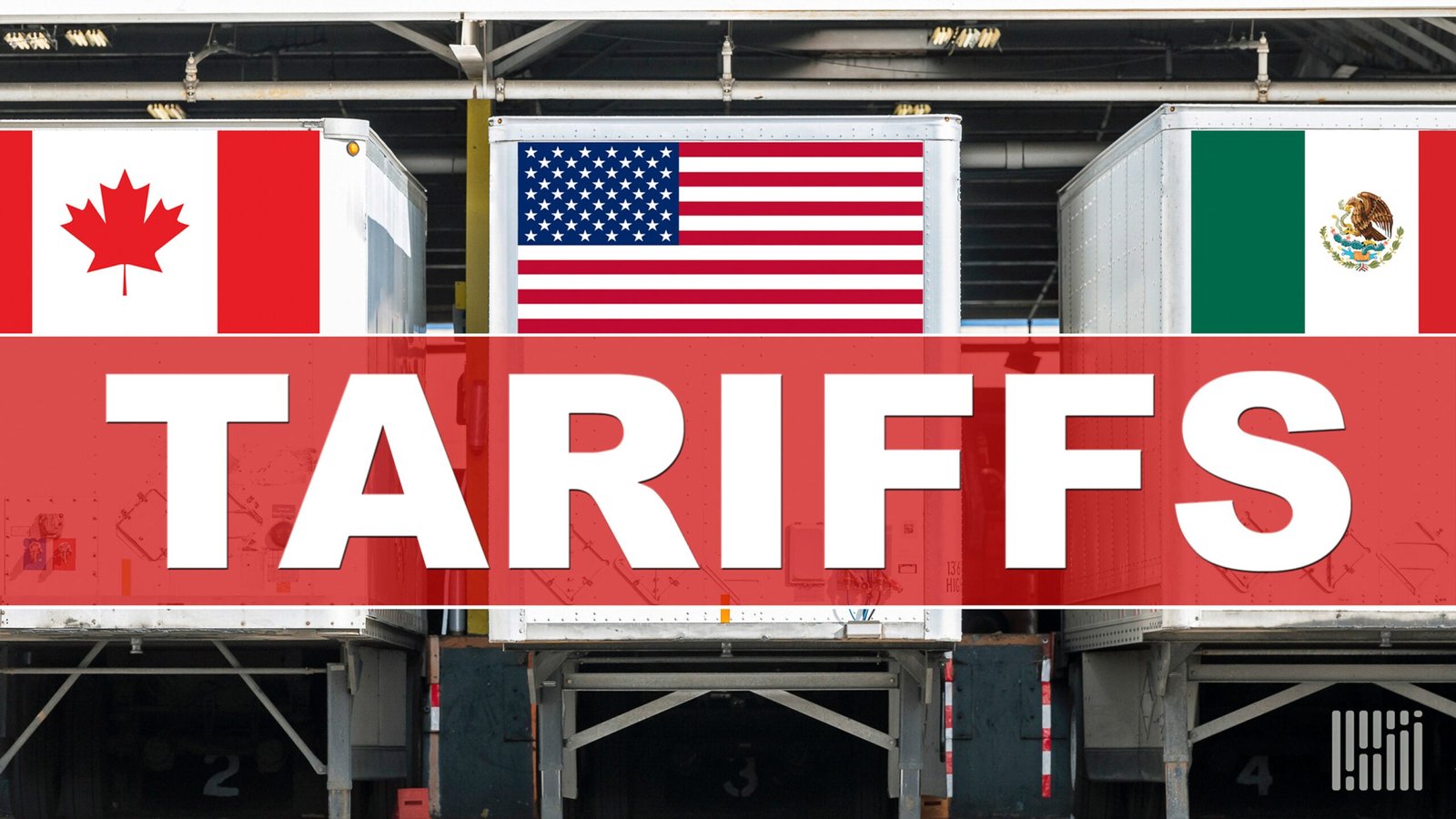WASHINGTON — Cross-border freight markets got some positive news out of the slate of reciprocal tariffs announced by President Donald Trump at the White House Wednesday with an important exclusion specific to the United States-Mexico-Canada Agreement.

Trump left the USMCA out of his “Liberation Day” tariff policy that saw a baseline 10% tariff on all U.S. trading partners, with reciprocal tariffs on some countries as high as 49%. In contrast, USMCA-compliant goods – products grown in and/or with content only from Canada, Mexico or the United States – will see no tariff.
The exclusion continues a policy that has been ongoing since early March when a 25% tariff was placed on non-USMCA-compliant goods – products deemed to be made in Canada and Mexico but that do not meet the requirements of the USMCA rules of origin for preferential tariff treatment.
The 25% rate was expected to begin applying on Wednesday to USMCA-covered goods as well, but according to Wednesday’s executive order, USMCA goods will be exempted indefinitely.
“It’s possible we will we see a dip in trade volumes now that we’re on the other side of this reciprocal tariff announcement, and we’re preparing for that, but we’re also heartened that Canada and Mexico did not get the brunt of this announcement,” Garrick Taylor, a spokesman for the Border Trade Alliance (BTA), told FreightWaves.
BTA, which counts executives from the American Trucking Associations, Ryder Supply Chain Solutions and BNSF among its board members, is a nonprofit that advocates for border development and trade in the Americas.
Taylor pointed out that when tariffs on Canada and Mexico were first announced earlier in the year, there was a spike in cross-border traffic as importers rushed to avoid the increase in duty fees.
“We would have preferred an increase in trade volumes generated out of thriving North American freight markets and not because importers were trying to play ‘beat the clock’ with tariffs.”
Auto sector relief?
Trump’s USMCA exclusion means significant portions of freight imports into the U.S. moving via truck and rail – much of which is related to the automotive sector – will continue to flow across the border absent the added costs that will be imposed on imports from overseas via ocean and air.
U.S. trucking companies generated $17.73 billion in revenue from truck transported trade with Canada ($7.86 billion) and Mexico ($9.87 billion) in 2023, according to the ATA.
“With the success of USMCA and the growing trend of nearshoring, the North American supply chain has become highly integrated and supports millions of jobs. Imposing border taxes on our two largest and most important trading partners will undo this progress and raise costs for consumers,” warned ATA President and CEO Chris Spear the day before Trump announced the initial USMCA exemption in March.
“Not only will tariffs reduce cross-border freight, but they will also increase operational costs,” Spear said at the time. “The price tag of a new truck could rise by up to $35,000, amounting to a $2 billion annual tax and putting new equipment out of reach for small carriers. The longer tariffs last, the greater the pain for truckers as well as the families and businesses we serve.”
FreightWaves reached out to ATA for comment on the continuation of the USMCA tariff carve-out.
In 2024, U.S. railroads handled an estimated $203.1 billion in cross-border trade, consisting of $104.8 billion in U.S.-Canada trade (66% imports/34% exports) and $98.3 billion in U.S.-Mexico trade (65% exports/35% imports).
“Railroads play a critical role in connecting American industries, small businesses and farmers to global markets and helping drive economic activity across the nation,” a spokesperson for the Association of American Railroads told FreightWaves in an emailed statement.













